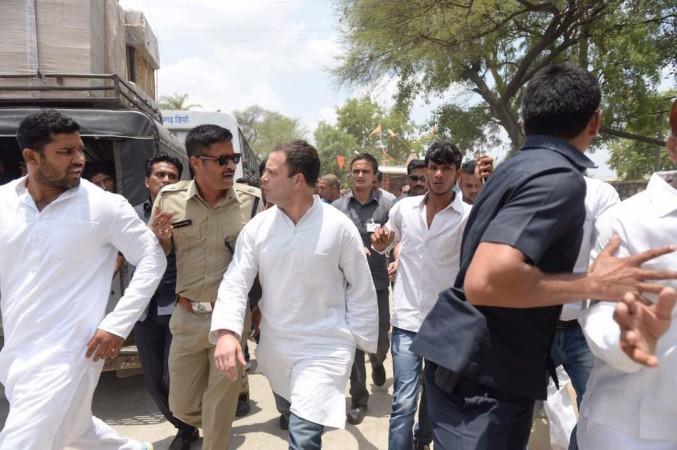
The controversy over the meeting of Congress vice-president Rahul Gandhi with the envoys from China and Bhutan and also an ex-NSA is significant for two reasons.
First, as many experts believe, the grand old party's flip flop over the meeting made it clear that the party's line of communication was not working fine. The Congress had first denied the meeting was ever held and termed the news as a fake one. And then it took a U-turn, saying the media was sensationalising the issue. It was a major lost opportunity for the Congress to make it relevant again in the national politics.
The second reason why this issue caught all eyeballs is Rahul Gandhi himself. Now, the man has a terrible problem and that is about his lack of identity. If we have closely followed the man's past, it is not the first time that Rahul Gandhi has courted such controversy.
In 2013, Rahul Gandhi spoke as a member of govt but yet faced flak
In October 2013 during the communal tension in Muzaffarnagar in Uttar Pradesh, the Congress vice-president had remarked at a rally in Madhya Pradesh that an intelligence official had told him that people from Pakistan were keeping connection with the kin of the Muslims killed in Muzaffarnagar.
Rahul Gandhi's statement had put the intelligence as well as the home ministry in a spot of embarrassment with the sleuths even claiming that no such revelations had been made to the Congress leader. Even though the Congress-led UPA was in power then, it was asked in what capacity Gandhi, an MP and no post-holder in the government, spoke to the intelligence officials.
Even before that in September 2013, Gandhi was slammed after he had openly called a controversial bill to shield tainted politicians by his own party's government as "nonsense" and warned that he would have torn it. It was also asked then how the Congress vice-president could embarrass his own government. What's his position to do so, the critics had asked.
And now, when Rahul Gandhi says about his meeting with the envoys that he "needs to be informed", not many are convinced. Does the leader have a mandate to meet a foreign envoy is the question.
"In what capacity?" the common question for Rahul Gandhi
So whether Rahul Gandhi is in the government or Opposition, questions will not cease to haunt him. "In what capacity?" has always been the reaction whenever the Congress leader does something. Whether he is right or wrong is not another story but the basic problem for the Congress No.2 is that he has not shed enough sweat all these years to earn a respect in the public life.
Rahul Gandhi was happily wasting time till he was blown away by Narendra Modi
Rahul Gandhi has never felt the urge to see himself grow as an administrator or minister, perhaps because his surname gives him a tremendous sense of pride. He became an MP for the first time in 2004 but just wasted the precious time for the next decade. He could have easily become a post-holder the second time the UPA came to power in 2009 but he chose to play it safe, remaining under the shadow of his mother Sonia Gandhi and the then prime minister Manmohan Singh. His party also kept on dilly-dallying, not understanding that even 'Gandhi' surname has an expiry date.
And then, there was the phenomenon called Narendra Modi who came, saw and conquered while Rahul Gandhi remained awestruck. The latter has remained an MP, just like those below-performers in the corporate who are happy with their non-growth thinking that their family history will eventually land them with something lucrative. But in reality, Rahul Gandhi has remained such a non-entity that each of his remark to prove his mettle as a statesman, away from the regular business of governance, falls flat.
Rahul Gandhi's meeting with the intelligence officials over Muzaffarnagar or with the envoys over Doka La standoff earns him more brickbats than bouquets because for his opponents, media as well as the common man, he has, at the end of the day, earned himself no identity.

















